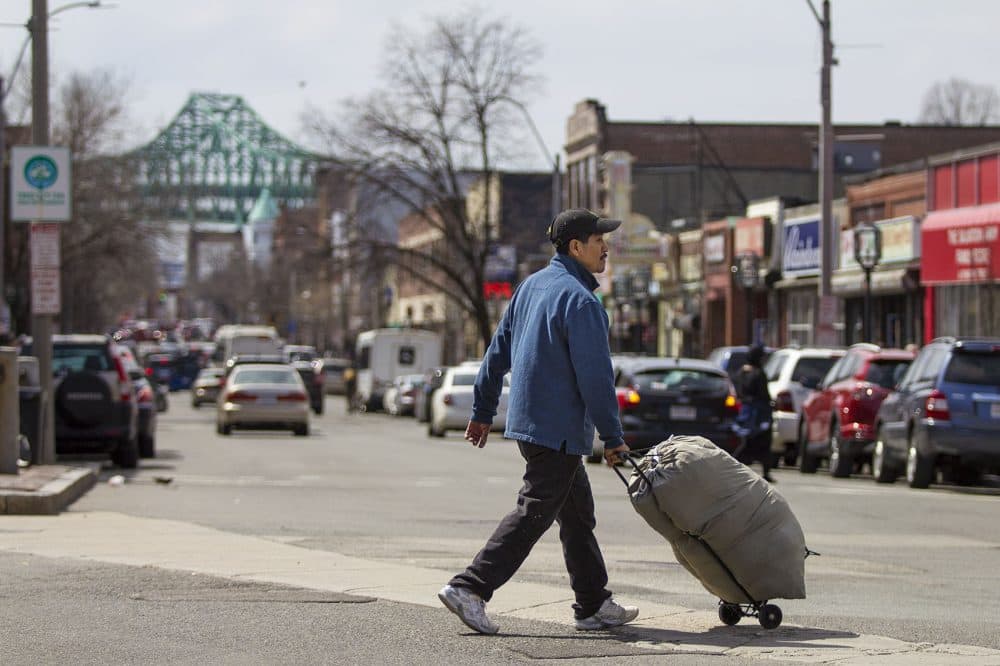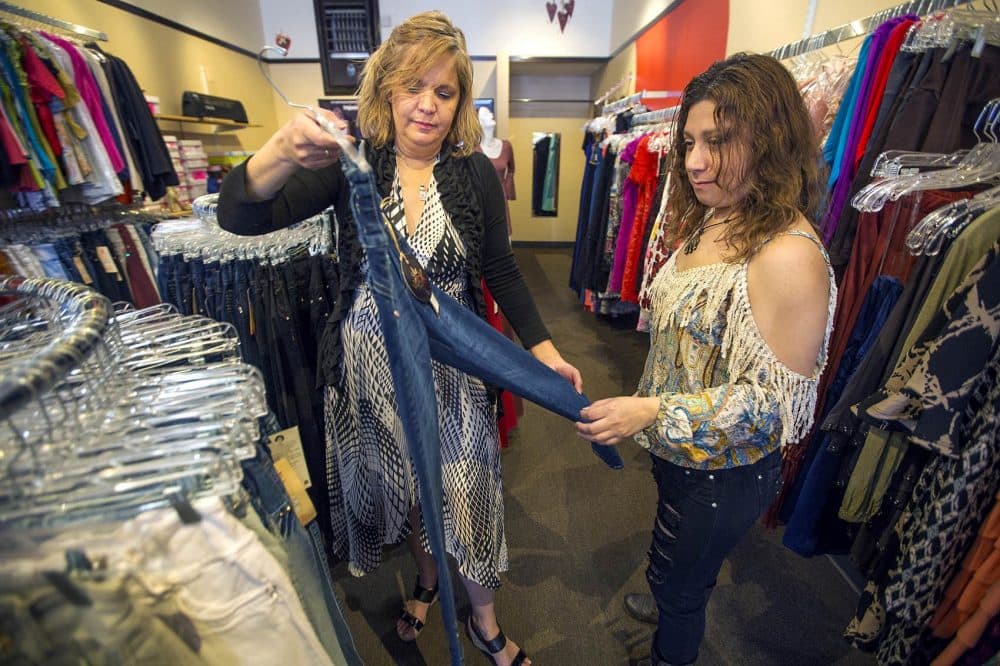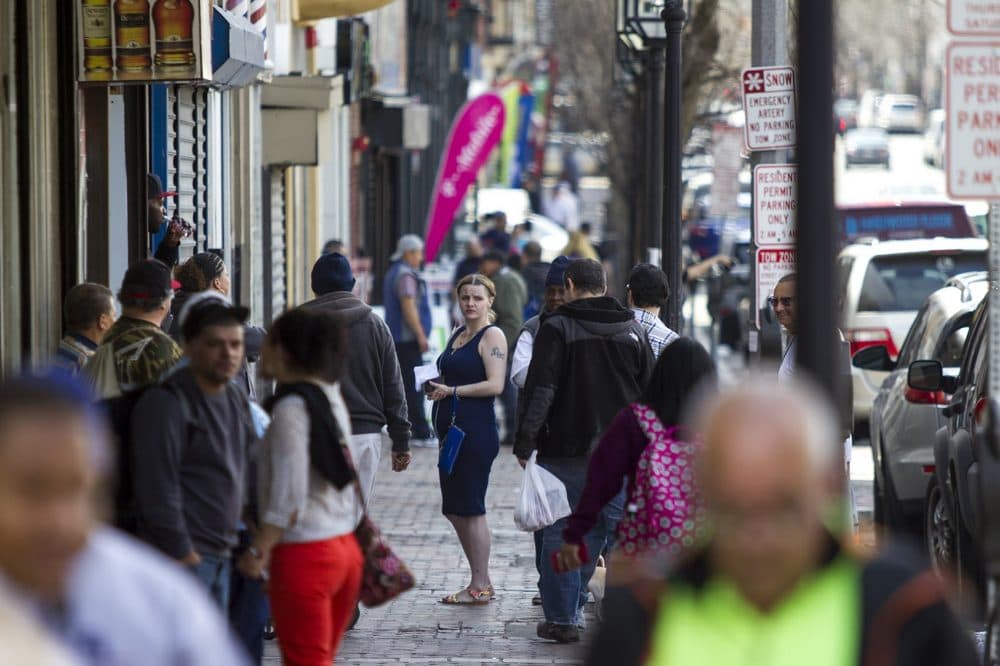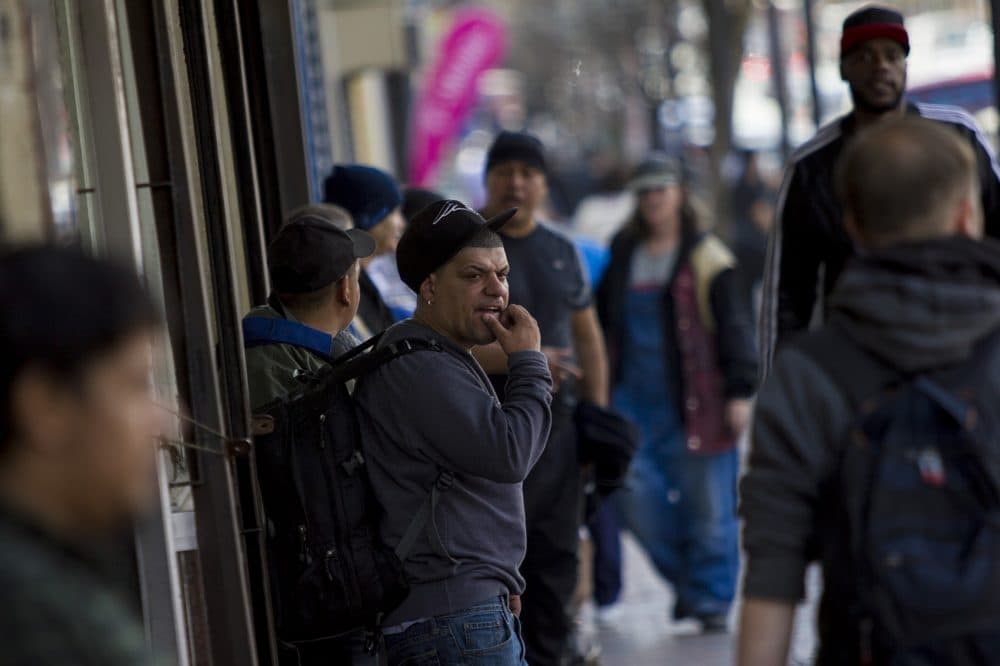Advertisement
In Chelsea, Suing Trump Is About More Than Protecting Federal Dollars
Resume
Chelsea and Lawrence are immigrant cities and have been for generations. As manufacturing hubs, the cities attracted Europeans in the 19th century. Both communities are now mostly Hispanic and Latino, and close to a quarter of the population in each city lives below the poverty line.
Beyond their blue-collar histories and lean budgets, Chelsea and Lawrence also share the unofficial title of "sanctuary city," and that informal designation is what ultimately prompted a lawsuit against President Trump and members of his administration.
'It's Impossible To Feel Normal'
The suit challenges the constitutionality of Trump's executive order threatening to pull federal funding from so-called "sanctuary cities." These cities are generally understood to be places where local law enforcement do not ask about an individual's immigration status and may not fully cooperate with federal immigration agents.
In Chelsea, the act of suing the federal government is just as much about protecting residents as it is about protecting federal resources.
At Amazonia Jeans on Broadway, shop owner Fatima Ortiz tends to a few customers, suggesting different ways of styling a summer dress. The ladies turn to the sale racks marked with two homemade signs on bright green poster board reading "50% off."
Business has been slow ever since the election. So slow, Ortiz says, that she dipped into personal savings to pay the store's rent. She says 90 percent of her clientele are Hispanic, and right now, many of them aren't leaving their homes. They're afraid of being swept up in deportation raids.
"The only place that's busy right now is the post office," Ortiz said. "Everybody is getting the passport for the kids. They are ready to leave in the moment that they have to leave."

Broadway is lined with stores like Sabor Latino, Campeón Soccer and Mi Salvador Mexicano, all reflections of a diverse community. But Ortiz says that sense of community may be at risk.
"It's impossible to feel normal because there's no people around, like, everybody is scared to go out and it's very, very difficult," she said.
What's At Stake
Iván Espinoza-Madrigal is executive director of the Lawyers' Committee for Civil Rights and Economic Justice, the group representing Chelsea and its co-plaintiff, Lawrence, in the suit.
"These cities and the people living in these communities have rights," he said.
Espinoza-Madrigal said these cash-strapped cities cannot afford to lose federal money.
"It would mean the closure of schools, it would mean firing city workers. It would mean destabilizing entire communities and disrupting families," he said.
Neither city has actually lost any funding yet, but according to the legal brief, Chelsea receives $13.9 million in federal funding — about 8 percent of its annual budget — while Lawrence receives around $37.8 million from the federal government — nearly 15 percent of its yearly budget.

Federal officials declined to comment for this story, but U.S. Attorney General Jeff Sessions has said Department of Justice dollars may be on the chopping block in sanctuary cities. He called on local leaders to fully comply with the federal government in the interest of public safety.
Larger metro areas like San Francisco and Seattle have also filed lawsuits against Trump. All of the briefs make the same basic arguments: The stripping of funding is an unconstitutional breach of state's rights.
Chelsea City Manager Thomas Ambrosino said the fiscal hit for a smaller city like Chelsea would be devastating.
"I envy the resources of some of those larger cities. They're probably in better position to react and survive the kinds of budget cuts being threatened by this executive order," he said. "We could not do that in Chelsea."
And financial resources are not the only thing at stake, according to Ambrosino.
"Our residents are fearful, and we felt it was important to send a message that the city of Chelsea was in the business of trying to protect the people who live here regardless of your immigration or documentation status," he said.
The federal government filed a motion on Monday to dismiss the lawsuit, saying the cities acted prematurely in suing and that they cannot prove they've been harmed by the mere existence of the executive order.

This segment aired on April 13, 2017.
